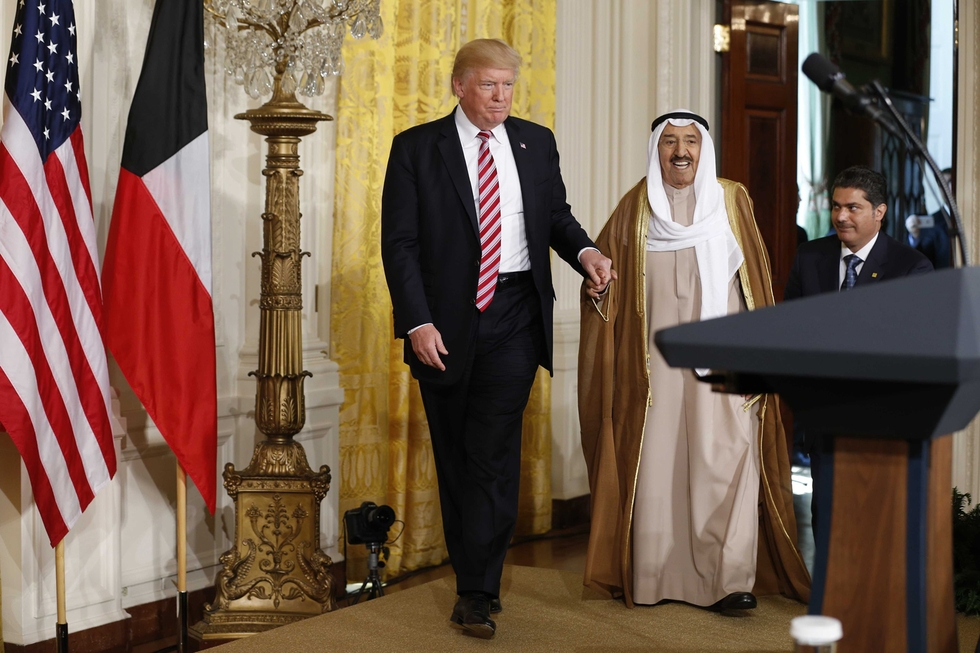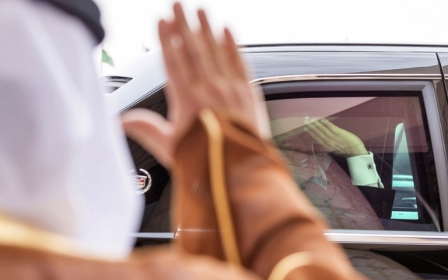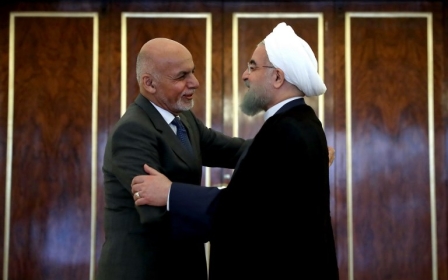Trump claims he can mediate 'quick deal' to end Gulf crisis

US President Donald Trump said he was willing to "help mediate" in the ongoing Gulf dispute and claimed he would have a deal worked out "quickly" to end the Saudi-led blockade on Qatar, a crisis he has previously taken credit for starting after claiming Qatar was a sponsor of terrorism.
His comments came in a joint news conference with the Kuwaiti emir, Sheikh Sabah al-Ahmad al-Sabah, in Washington on Thursday.
Trump said Kuwait was helping the United States in the Gulf and things were "coming along nicely".
"If I can help mediate between Qatar and, in particular, the UAE and Saudi Arabia, I would be willing to do so, and I think you would have a deal worked out very quickly," he said.
Trump's comments come months after an inflammatory speech in Saudi Arabia, his accusations that Qatar funds terrorism, and after apparently taking credit for encouraging the blockade in a series of Twitter posts.
Trump also said he would be “very upset” if Syria’s government uses chemical weapons. The US launched air strikes in April at a Syrian airbase after President Bashar al-Assad’s government allegedly unleashed sarin gas on Khan Shaykhun in eastern Syria, killing 80.
Trump also touched on peace talks between Israel and Palestine, saying there is a "chance" for a Middle East peace settlement, long one of the most elusive goals of US diplomacy.
"I think we have a chance of doing it," he said.
Trump acknowledged that previous administrations had come close to, yet never reached, a deal between Israel and the Palestinians. But he said: "We're going to give it our best."
He said both sides wanted peace and that the US had "tremendous talent" working on the problem. He did not mention his son-in-law Jared Kushner, who last month led a US delegation to the region to discuss reviving the peace process.
Kuwait has emerged as a key mediator after Saudi Arabia, Bahrain, the United Arab Emirates and Egypt announced on 5 June they had cut diplomatic and economic ties with Qatar.
Riyadh and Doha are both key allies of the United States. Trump chose Saudi Arabia for his first overseas visit as president in May, two weeks before the Gulf crisis erupted.
Qatar is home to a huge US air base, where the headquarters of Centcom - the regional command that leads operations against the Islamic State group - is based.
Saudi Arabia and its allies accuse Qatar, the world's largest exporter of liquefied natural gas, of ties to Iran and to terrorist groups.
Doha denies the claims and accuses the other countries of an attack on its sovereignty.
New MEE newsletter: Jerusalem Dispatch
Sign up to get the latest insights and analysis on Israel-Palestine, alongside Turkey Unpacked and other MEE newsletters
Middle East Eye delivers independent and unrivalled coverage and analysis of the Middle East, North Africa and beyond. To learn more about republishing this content and the associated fees, please fill out this form. More about MEE can be found here.




